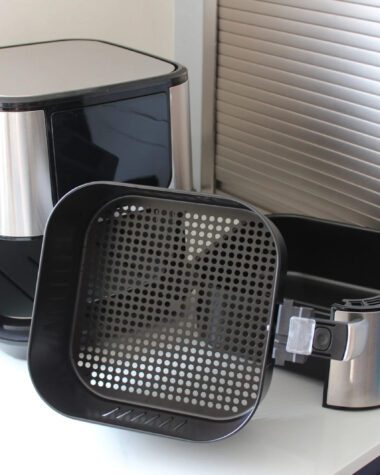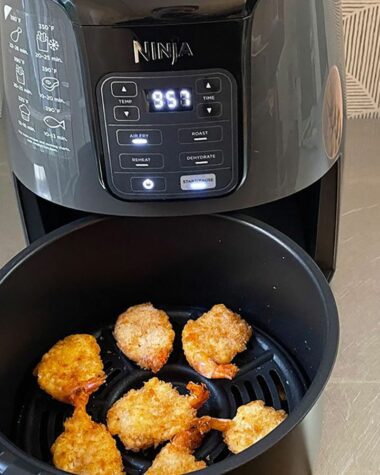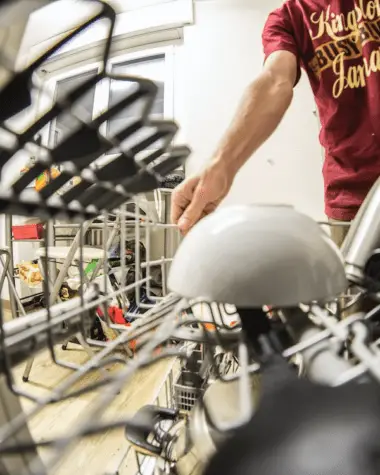Did you know that there are thousands of dishwasher-related incidents yearly in the United States alone?
These accidents range from shallow cuts to fires and electrocutions. While most of these accidents are considered minor, they should still be a concern as they can still be painful and costly.
Knowing how integral dishwashers are in any home setting, it is also crucial to know how to operate them safely to prevent any unnecessary accidents from ever occurring.
With that being said, here are 9 dishwasher safety tips and things to avoid to keep your trusty machine in tip-top shape.
The Owner’s Manual Is There For A Reason
As our technology continues to advance and adapt to our growing needs, modern appliances will have more and more features and options that render them more efficient and effective than ever before. This includes dishwashers.
However, with these added features, these appliances become more complex and perhaps much harder to comprehend for non-technologically savvy people. This makes it integral to read the owner’s manual that comes with the appliance itself before operating it in the first place.
Doing so will help you better understand how to properly operate the machine and avoid potential incidents like the ones we discussed briefly above. Furthermore, always ensure that you use the appliance only for its intended purpose, as described in the owner’s manual.
We are all guilty of heading straight to the goods and ignoring the mundane things, such as manuals, whenever we make a new purchase. That needs to change, as sometimes, reading the manual saves you from an accident.
Only Use Detergents Designed Specifically For Dishwashers
One important thing to remember when using dishwashers is to only use detergents or wetting agents specifically designed for dishwashers. As tempting as it may be to simply put laundry soap or any detergent you find nearest, doing so would only hurt your machine.
In the hopes of saving money by not buying dishwasher-specific detergents, you’d be costing yourself more in the long run.
These products are formulated to produce the right amount of suds, and using a different type of detergent on your machine can cause it to fill up with excess suds and overflow. Not only will you have a bad time cleaning up, but you’d also cause damage to your dishwasher in the process.
It is also worth pointing out that these detergents, much like any, can be harmful if ingested. Do our best to keep them out of reach of children.
Related Article: Liquid vs. Tablet Detergents for Dishwashers: Which is Better?
Keep Children And Pets Away As Much As Possible
Relative to the previous entry, dishwashers, and some of their necessities, can sometimes be harmful to children and pets. And as you would already know, children and pets are filled with curiosity. They love nothing more than to explore their surroundings and discover how things around them work without thinking about the possible consequences.
Sadly enough, the same curiosity that we admire them for can also lead to accidents. One example is the dishwasher. Children or pets near the appliance while it is still in use can easily become injured by the detergent, hot water, or spillage that, unfortunately, may leak out of your machine.
To avoid these incidents from ever occurring, you should keep them away from the dishwasher as much as possible. If necessary, put a barrier between them and the appliance to protect your loved ones and the machine itself.
Lastly, always make sure that the dishwasher is turned off and the detergent dispenser is cleaned out after using it.
Avoid Overfilling The Dishwasher
Few things in this world are as frustrating as loading up the dishwasher only to have water spill out and make a huge mess on your kitchen floor. Not only will your dishes not come out as clean as you would expect, but the spillage could also become a hazard. Someone can unknowingly walk on it only to slip and hit their head on the floor. Nobody wants that.
This is because dishwashers require a certain amount of water to operate effectively relative to the number of dishes or kitchenware you load. When you overfill them, the water has nowhere to go but out.
Furthermore, the dishwasher’s pump may not be able to circulate the water properly, resulting in poor cleaning performance. With all that being said, resist the temptation of cramming just one more dish into the machine when it is already full. Only feed your dishwasher what it can eat to avoid damaging it.
Related Article: 17 Things You Can Put in Your Dishwasher (That You Didn’t Know)
Never Touch The Heating Element
As you may probably already know, dishwashers heat the water it uses to clean our dishes. So when operating a dishwasher, it is crucial that you are made aware of the potential hazards of its integrated heating element. Remember that the element can get extremely hot, and one touch of it can already lead to serious burns.
With that in mind, remember never to touch the heating element altogether. And if you must, for any reason, perhaps want to check up on it, use extreme caution and ensure that you have thick gloves or a towel to safeguard your hands.
Do Not Tamper With The Controls
Unless you are a professional and know what you are doing, it is best to leave the dishwasher controls alone whenever you operate them. While it may be tempting to fine-tune the settings to your needs or to get the dishes cleaned out faster, doing so often only leads to more problems down the line.
For example, increasing the water temperature may seem like a surefire way to get rid of tough stains, but it can also cause damage to sensitive items such as glassware when adjusted too much.
On the other hand, lowering the water pressure can indeed save energy, but it can also result in poorly cleaned dishes. As a general rule of thumb, it is best to stick with the default settings and only make adjustments when it is necessary.
Place All Utensils Pointing Down In The Utensil Basket
Make it a habit to put all utensils, especially sharp items such as forks and knives, with their points down in the utensil basket of your dishwasher. Disregard the many controversies about the subject of how you should keep your utensils in the dishwasher.
While most dishwasher manufacturers say that it is better to keep your knives and forks facing upward, there are safety issues in doing so.
One example is if you are going to put them with their points upwards, chances are you would be putting them in and taking them out while touching their sharp side. This can either go in two ways.
First, you’d risk cutting your fingers, the palm of your hand, or even your wrist as you reach down into the dishwasher to take them out. Regardless of how careful you may think you are, you stand a greater risk of a hand injury by placing them with their points upwards.
The other is the risk of transferring germs to the newly-cleaned edges of your utensils, as you may reach down without washing your hands thoroughly first. With that in mind, it is advisable to keep them facing down instead.
Do Not Rush Unloading The Dishwasher After The Cycle
Once the cycle is completed, give the machine a bit more time before unloading the dishes and utensils you put inside of it to fully cool off. Pay close attention to see if any steam is escaping from the dishwasher before doing so. If there is steam, just come back after a few minutes.
To prevent possible scalds and burns, always exercise caution whenever you open the dishwasher door, especially if you have kids and pets around. Make it a point never to open the dishwasher door when there is still steam coming out of it.
Do Not Repair Or Replace Dishwasher Parts Yourself
Contrary to the belief of many that they can save more money by repairing or maintaining their appliances themselves, unless you are someone who knows your way on such machines, calling the help of a professional is the much cheaper way.
Keep in mind that appliances, such as dishwashers, are complex machines, and DIY repairs can often only do more harm than good.
Furthermore, most manufacturers would void your warranty if the dishwasher is repaired by anyone other than a qualified professional.
With all that said, it is better to just call a qualified technician once you encounter any problems with your dishwasher. Not only will this ensure that your dishwasher is repaired or maintained properly, but it will also protect your investment.
Related Article: 9 Common Mistakes You are Doing on Your Dishwasher (The Ugly Truth)
Conclusion
Dishwashers are undoubtedly great additions to any kitchen, but it is essential to use them in a safe and controlled manner. By following the simple steps we shared above, you can help prevent accidents while ensuring that your dishwasher continues functioning at its best.
Take note that as soon as you encounter any problems with your machine, it is always the smartest move to call a qualified technician for assistance before fiddling with it yourself. Your dishwasher will provide years of trouble-free use as long as you treat it with proper care and ensure that it is always maintained.
Would you like to know the top dishwashers this 2023? We got you covered! Follow the link and take a look at our picks.









